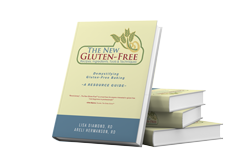Our bodies are miracles.
Our bodies are made up of 100 trillion cells that perform billions of reactions per second each and every day. Oxidation is a normal process by which our body uses oxygen (hence the term oxidation) for energy metabolism. During virtually every cell function, including the creation of ATP (our body’s energy currency) electrons are passed back and forth between atoms. Free radicals are formed as a by-product of these reactions. Free radicals are atoms with unpaired electrons which are highly unstable and short lived. That being said, the damage from free radicals is self-perpetuating. Once a molecule is oxidized it reacts with its neighbouring molecules (i.e. it robs an electron from a neighbouring atom) and causes a cascade of damage. Every structure and every substance produced by the cells in the body are susceptible to damage. It is thought that each cell of the body receives an estimated 10,000 hits by free radicals each day. Normally, our cells can handle free radicals generated by physiological activity (free radicals actually play a role in stimulating the body to repair damaged cells). If the production of free radicals becomes excessive or there isn’t a sufficient supply of antioxidants, the body’s repair process becomes overwhelmed and oxidative damage and chronic systemic inflammation results. Chronic systemic inflammation is linked to disease such as cancer, heart disease, Alzheimer’s disease, arthritis, premature aging, grey hair, and more. There is a dynamic balance between the number of antioxidants and the number of free radicals required to keep the body healthy.
What factors cause oxidative stress?
There are many, many, many processes going on in the body at any one time that can cause oxidation – some of which include:
- Energy metabolism – when our bodies use glucose to make energy
- Fighting infections – when our immune system fights infection and creates inflammation
- Physiological and emotional stress
-
Dietary and lifestyle factors
- Highly processed food – additives, artificial colours & flavours, preservatives
- Hydrogenated fat, fat heated to high temperatures
- High sugar intakes, high carbohydrate intakes including foods high in glycemic foods
- High animal protein intakes
- Inadequate fluid intake or dehydration
- Inadequate amounts of physical activity
- Smoking including exposure to second hand smoke
-
Environmental contaminants – when our bodies detoxify polutants
- Pollution – Air, water, and food
- Radiation exposure
- Chemical cleaning supplies
- Plastics and phthalate
- Soil contaminants such as pesticides
Your body is going to make free radicals each and every day and you are going to be exposed to toxins and stress – your job is to balance it with enough antioxidants so that damage does not happen.
What can you do to decreasing oxidative stress?
1. Make healthy food choices
- There are many foods that contain antioxidants or produce antioxidants from the amino acids within the foods. Glycine, glutamate, and cysteine in combination with sulfur make a very powerful anti-oxidant – glutathione (found in asparagus, peaches, spinach, tomatoes, and walnuts). Garlic, onions, broccoli, kale, avocados contain sulfur and assist in the production of glutathione. Other foods that are higher in antioxidants are richly coloured vegetables such as beets, kale, tomatoes, berries, artichokes; nuts and seeds; tea, cinnamon, ginger, turmeric, chocolate, red wine and more. Other antioxidants include vitamins A, C and E, selenium, grapeseed extract, reseveretrol, catechins, quercetin, polyphenols, alpha-lipoic acid, Coenzyme Q10 (CoQ10) and many others.
- Avoid high sugar foods and over eating. Balancing your blood sugars can assist in reducing the production of free radicals hence oxidation. Eating balanced meals and spreading foods out throughout the day assists in reducing oxidation.
- Avoid processed foods. Many processed foods contain refined ingredients, higher sugar and artificial food additives, colours and preservatives. Choose real foods when ever possible and this will assist in reduced oxidation.
2. Prevent getting sick
- When the body is sick the immune system creates inflammation and drains the body of energy. Educate yourself and practice everyday infection control practices such as proper hand washing your hands.
3. Build in time to de-stress and re-energize
- You and your body need time to relax, re-center, and re-energize though activities and time-outs that you enjoy. Do not underestimate the power of breaks. Plan in time in your day to get out for a walk, talk to a friend, draw, play music, mediate, enjoy nature, play …..
4. Reduce exposure to pollution
- Change your house cleaners to non-toxic version
- Quit smoking and avoid second hand smoke
- Try and avoid exhaust fumes
- Eat organic foods
- Avoid hair and nail salons
- Check your personal care products for toxic ingredients and change to ones that have non-toxic ingredients
5. Supplement your diet with high quality nutrition supplements as recommended.
-
Supplements are not created equally. When choosing a supplement look for one that is:
- Complete
- Offered at optimal levels
- Balanced
- Bioavailable
- Potent
- Safe
- Use the Nutrisearch Comparative Guide to Nutritional Supplements by Lyle MacWilliam to determine how your supplement measures up
- Always check with your doctor, pharmacist and/or dietitian before starting a supplement regime; especially if you take medications of any kind.
Are you your healthiest self? I can help you get there.
BOOK AN APPOINTMENT TODAY TO MEET AND REVIEW YOUR FOOD AND LIFESTYLE CHOICES.
Together we can develop a plan to help you be your healthiest self.




